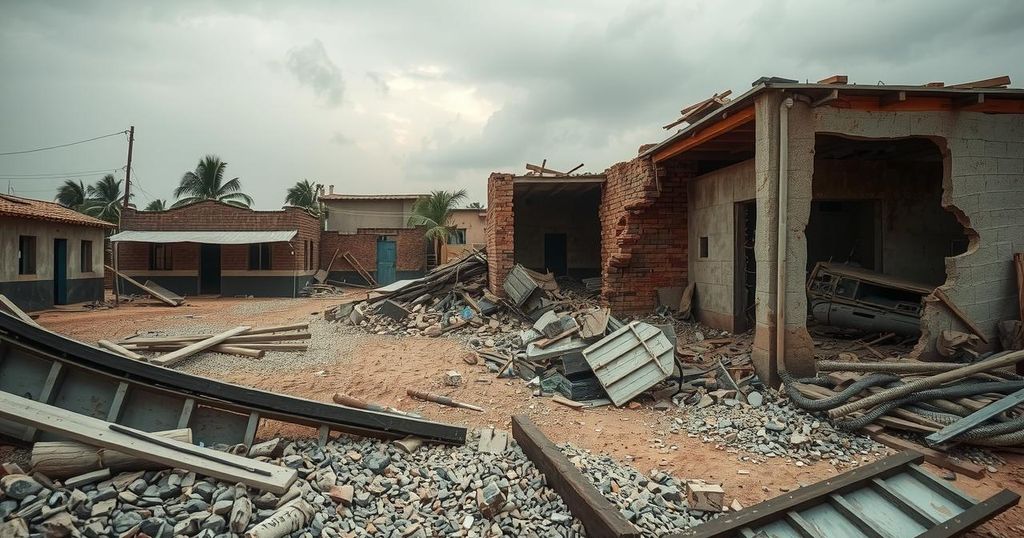An airstrike in Nasir, South Sudan killed at least 19 people as tensions rise following government forces’ withdrawal. Clashes with the White Army have reignited fears of civil war. The government claims linkage to Riek Machar’s party, while Machar denies these allegations. A related helicopter attack resulted in additional casualties, and the presence of Ugandan troops raises concerns about the destabilization of the region.
In South Sudan, an airstrike executed by the air force resulted in the deaths of at least 19 individuals in the eastern town of Nasir, as reported by local residents. This incident occurred shortly after government forces withdrew from the region, where intense conflicts with the ethnic militia known as the White Army had taken place. These clashes have raised concerns about a resurgence of the civil war that transpired between 2013 and 2018, during which hundreds of thousands were killed.
The government has accused the party affiliated with First Vice President Riek Machar, who belongs to the Nuer ethnic group, of collaborating with the White Army. This group had previously allied with Machar’s forces against the predominantly Dinka troops loyal to President Salva Kiir during the civil war. However, Machar’s party has categorically denied these allegations.
On March 7, approximately 27 soldiers were killed, including a general, when a U.N. helicopter attempting to evacuate them from Nasir came under fire. Michael Makuei, South Sudan’s Information Minister, confirmed that the air force bombed the area on the morning following the strike. Community leader Kang Wan described how 15 individuals died immediately from the attack, while additional victims later passed away due to their injuries, noting their bodies were burned in the incident.
Doctors Without Borders (Medecins Sans Frontieres) reported that their hospital in Ulang treated three wounded patients from Nasir on Monday, with two pronounced dead upon arrival due to severe burn injuries. Nasir County Commissioner James Gatluak Lew, who is allied with Machar, suggested the South Sudanese forces targeted the airstrike as a form of retaliation for the prior helicopter attack.
Last week, Uganda announced the deployment of special forces in South Sudan’s capital, Juba, citing the need for security. The South Sudanese government contested the presence of these troops, though Makuei later acknowledged that some Ugandan army units had entered the country to support the national army as needed.
The airstrike in Nasir highlights the ongoing tensions in South Sudan, particularly concerning the ethnic divisions that have historically fueled violence. Allegations of collusion between military factions and militia groups illustrate the complex power dynamics at play. The recent military actions, including the involvement of Ugandan forces, indicate a possible escalation in regional instability. As these developments unfold, the humanitarian consequences for civilians remain a pressing concern.
Original Source: www.straitstimes.com






